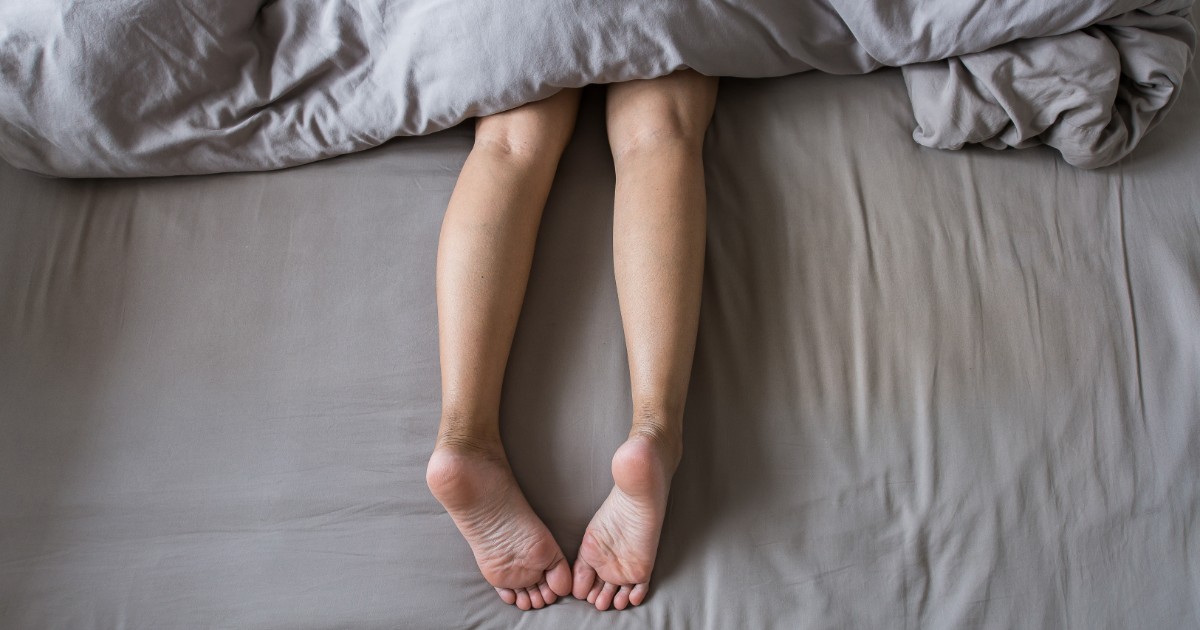Restless legs syndrome or shortly RLS, is a health condition in which legs feel very uncomfortable while sitting or lying down, especially at night. Usually it makes one feel like getting up and moving around. When doing so, the unpleasant feeling of restless legs syndrome might go away, sometimes it works and sometimes it doesn’t. Restless leg syndrome affects both, men and women and can begin when you’re young or as you get older. Restless legs syndrome can disrupt sleep thus leading to daytime drowsiness.
So, what causes restless leg syndrome?
Nobody actually knows the real cause for restless leg syndrome. Some research has been done and the researchers suspect it might be due to an imbalance of the brain chemical called dopamine. Dopamine sends messages to control muscle movement.
It has been also noticed that restless leg syndrome runs in families and that stress tends to make things even worse. If there is any changes in hormonal balance, that may worsen restless leg syndrome symptoms. It has been noticed that some women experience restless leg syndrome during their pregnancy and it disappears soon after the delivery.
However, restless leg syndrome is not related to some serious medical problems, but sometimes it accompanies other conditions and some of them are peripheral neuropathy. Peripheral neuropathy damages the nerves in hands and feet and sometimes it is due to chronic diseases such as diabetes and alcoholism. Also, iron deficiency might cause restless leg syndrome, it might cause or worsen restless legs syndrome.
Researchers also assume that kidney failure might be the cause too, at least to a degree. This is when the kidney does not function properly, iron stores in blood can decrease and cause some of the rls symptoms. All these and some other changes in body chemistry may cause or worsen restless leg syndrome.
Some other, known causes of restless leg syndrome include muscle overexertion, prolonged sitting, dehydration, decreased potassium levels, neuromuscular disorders, such as Parkinson’s disease, certain medications, such as albuterol, niacin, diuretics, and some calcium channel blockers and antipsychotic medications, also alcohol use.
Avoiding restless leg with lifestyle changes
A number of lifestyle changes may be enough to ease the symptoms of restless legs syndrome.
These include:
- avoiding stimulants in the evening (such as caffeine, tobacco and alcohol)
- not smoking (read more about how to quit smoking)
- regular daily exercise (but avoid exercising close to bedtime)
- good sleep habits (tips to beat insomnia include going to bed and getting up at the same time every day, not napping during the day, taking time to relax before going to bed, and avoiding caffeine close to bedtime)
- avoiding medicines that trigger the symptoms or make them worse (if you think medication is causing your symptoms, continue to take it and make an appointment to see your GP)
Try these if you have an episode of RLS:
- massaging your legs
- taking a hot bath in the evening
- applying a hot compress to your leg muscles
- doing activities that distract your mind, such as reading or watching television
- relaxation exercises, such as yoga or tai chi
- walking and stretching







Be First to Comment